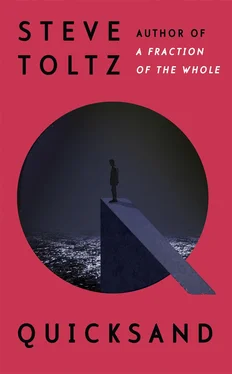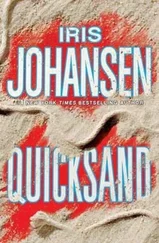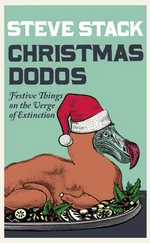It was ten p.m. by the time Aldo was warned and released with a court date for violating the AVO, and we were in my car on the way back to his apartment. Aldo looked tenderised and depleted; he gripped the armrest and stared out the window with a smile of fear at the mundane streets of the cold city, appearing increasingly tiny and alone, and in between shallow breaths, to my eternal chagrin, continued his pre-interview rant, his wholesale dumping of thought, his tour de force of complaint. He was afraid, he said, that he’d failed himself in ways he’d never understand, hated the unbearable sight of nobody in love, loathed people who prayed so hard they thought they were making God come, was depressed that the only people in society who commanded his respect were those he saw on trains reading manuscripts of sheet music, was sick of wondering whether to assign meaning to his misfortunes or not, irritated at how people would quick-smart find tragic a suicide rather than the preceding decades of unbearable psychological torment leading up to it, which was just seen as normal life —
I slammed on the brakes and glared at him. His face looked like it had been melted down and recast.
‘Are you going to be OK?’
‘I don’t know.’
‘Are you going to try this again?’
‘That depends.’
‘On what?’
‘In the tropics, do coffins at open-casket funerals have mosquito nets?’
‘Do what?’
‘There’s a market there.’
‘What?’
‘Mosquito nets for open-casket funerals in tropical climes!’
I gaped dumbly. This was typical Aldo. He was preparing for death, but at the same time doubling up on life. Suicidal and ambitious. Furiously tying nooses while intermittently doing abdominal exercises. It was absurd.
‘Let’s have a drink,’ I said. ‘We have some brainstorming to do.’
‘Holster your cock, Officer.’
‘Shut up until we get there. I need a drink to listen to you.’
I drove us to the Hotel Hollywood and while chain-smoking in the beer garden I told him that he was already well proven to be phenomenally unlucky; his next suicide would likely have him lapse into a coma, or leave him with internal organ damage, brain damage, paralysis or horrific disfigurement, and he’d live the rest of his life in a state-run, underfunded care facility, or worse. As I said this it occurred to me there was something different in his eyes; they were like cartoon asterisks or pinwheels, maybe from him having gone halfway up and back the tunnel of light so many times he’d left a greasy trail. I feared a permanent psychotic break, and worried that this intense accelerated state would be his new normal. I gave him an ultimatum: cobble together a will to live and settle upon a short-term life plan by the end of this drink or I would shoot him in the face. I said I’d be shirking my duty as a friend if I didn’t help him build a tenuous link to life. Besides, I had my pen and notebook ready.
Aldo agreed to no more businesses, no more borrowing, no more investments, no more restaurants, no more get-rich-quick schemes, and since having a boss was impossible for someone with his temperament, he decided he would freelance, but as what? I reminded him that after high school he had been a cold-calling, pet-sitting, house-cleaning, garden-clearing, leaflet-distributing-aholic. He needed to go back to basics. I convinced him to put himself in the service of others. Helping people in whatever way they needed help. I wrote down where Aldo’s strengths and skill-sets lay, and made a sign for him that he agreed to affix to walls and telegraph poles all over the city.
This was the sign:
HANDYMAN. CAN DO ALMOST ANYTHING — WITHIN REASON. HOUSE PAINTER. WINDOW WASHING. LANGUAGE TEACHER (ENGLISH ONLY). MOW LAWNS. PUNISH YOUR CHILDREN. WHATEVER. $25 AN HOUR. ALDO BENJAMIN. 063 621 4137. NO JOB TOO DISTASTEFUL.
That was literally the best we could do.
The night sky was weirdly pale. We drove home through silent streets, past inner-city terraces with young people carousing on wrought-iron balconies and burlesque-outfitted women shadowed by males swaggering with sexual violence. Aldo’s skin seemed made of cheesecloth and he was squished down in the passenger’s seat once again throwing off scalding thoughts and stamping on them, my internal organs speakers through which his voice was amplified. The air in the car was fusty, almost unbreathable. I gripped the wheel until my palms began to ache, experiencing a fatigue that started to feel like pain, trying to shut down my peripheral vision so as to avoid his face turned towards me. Aldo was, he said, fed up with foraging for silver linings, irritated by how a lifelong use of humour as a defence mechanism had perverted his sense of humour and weakened his defences, sick of needing assurances that others were not enjoying their lives either, bored by hostile looks in bathroom mirrors that could descend any moment into violence, weary of the dread of insomnia, of floating down a silent river of hours towards dawn weighing up the worst of human cruelty, e.g. bayoneting babies in utero (the Rape of Nanking) vs. forcing sons to rape their mothers (Kosovo).
I accelerated down the three-lane highway. I wanted him out of the car; I’d had more than I could take.
Once out of the harbour tunnel, we passed a rattling semitrailer spilling dirt on the road, and a manure smell poured in through the windows. We drove down the deserted sombre streets, my police radio calling for backup — a brawl in the Cross — and I was thinking a complicated warren of thoughts, such as how Morrell writes, Just as in quantum physics the observer alters the behaviour of the observed, so in art does the artist modify the subject , and wondering how whatever I came up with would transform Aldo, but I was also trying to memorise what he was saying. He had landed, once more, on his defining theme, his fear of prisons and hospitals, the medical-industrial complex, the prison-industrial complex, antibiotic resistance levels, the unreliability of eyewitness testimony, protective custody, quarantine, secondary infections, trumped-up charges, the general population, visitation rights, visiting hours, tainted blood transfusions, wrongful convictions, misdiagnoses, lockdown, pathogens, handcuffs, vital-signs monitors, pneumatic sliding doors. He recounted a dream (‘As you know, doctors have long personified death in my dreamscape, and I keep dreaming about a sign in a hospital men’s room that says, SURGEONS MUST WASH THEIR HANDS BEFORE RETURNING TO WORK) and finally he linked his two obsessions: ‘When you think about it,’ he said, ‘ pre-existing conditions and prior convictions amount to the same thing: once you’re fucked, you’re fucked again for having once been fucked.’ I pulled up to Phoenix Court with a violent screech and we both jerked forward. My brain felt parched, starved of oxygen. Just before he got out of the car, Aldo asked, in a furious voice, ‘Why the fuck does depression get to be a disease when frustration does not?’
He shut the door. Sharp air gusted in through the open window, and without noticing the tears of exhaustion in my eyes, Aldo spoke of two decades of thwarted impulses, backed-up energy; the toll taken by gratification forever denied, by keeping his aggression in check, by love rejected if not outright flung back in his face; and of how it was not elusive goals that had worn him down, but the accreted obstacles that needed to be removed to obtain them, and just before he turned and faced the barely traversable puddles of vomit and then disappeared through his building’s shattered glass door, he gave me his final self-diagnosis: he was convinced he was suffering from clinical frustration , a human-wide phenomenon that as yet no pharmaceutical companies were ‘getting into’.
Читать дальше











